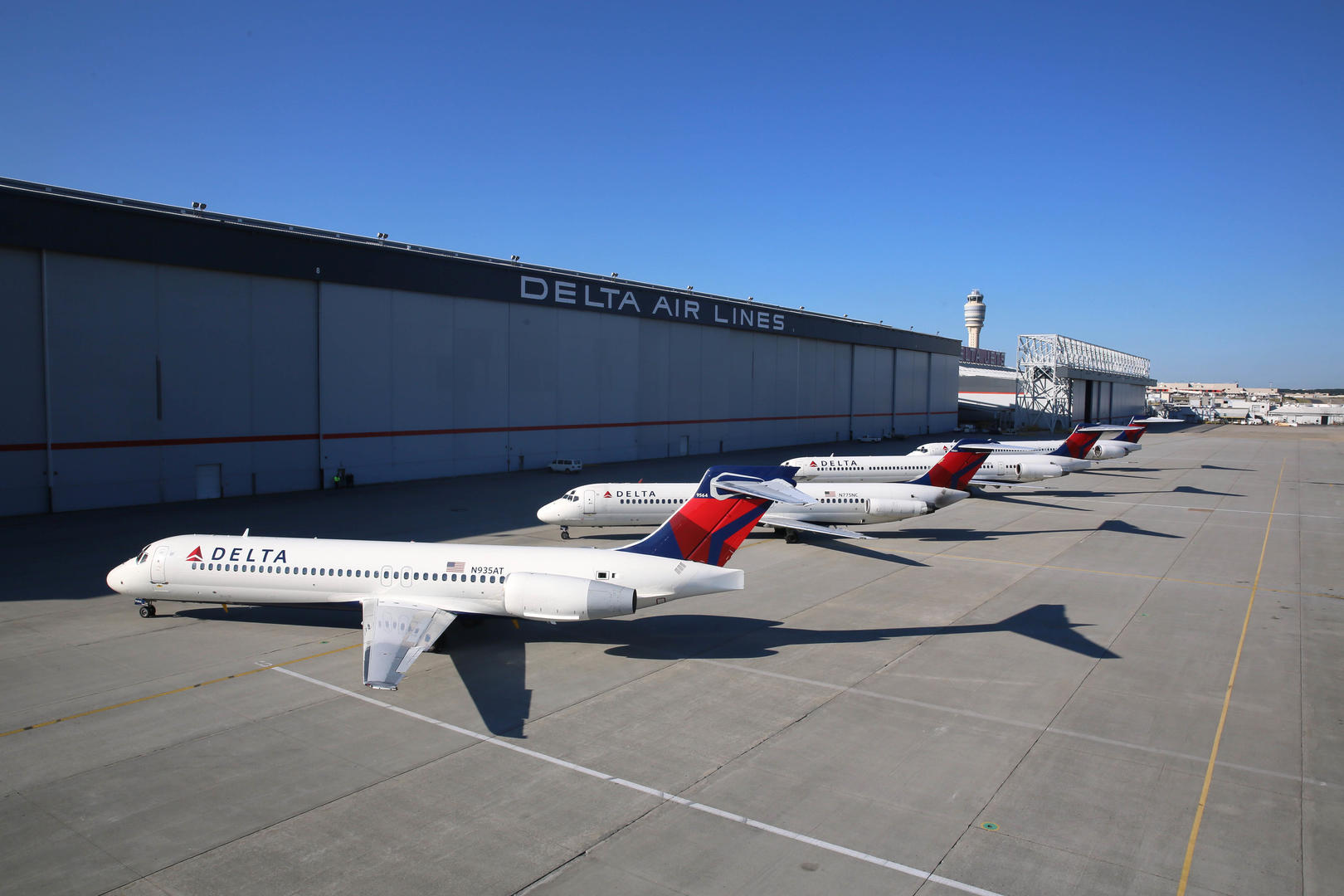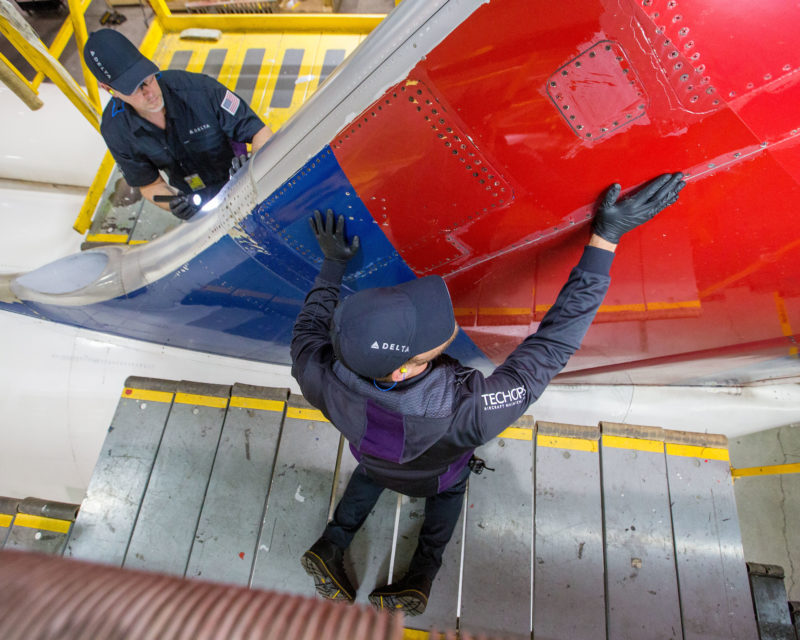- Home >
- To go further >
- Practical cases >
- Delta Airlines
Delta Airlines
Implementation of the Critical Chain Project Management to manage aircraft maintenance at Delta Airlines.
In 2010, Delta Airlines had 13 different aircraft fleets and had to manage 2,500 departures per day with 80,000 employees.
Every day, some aircraft were scheduled for maintenance, including:
- MEL: Emergent Maintenance Work - corrective maintenance work.
- Time Control: Preventive Maintenance Work - continuous monitoring and preventive maintenance tasks.
Delta often faced resource challenges in carrying out proactive repairs on the aircraft, which led to AOS events (Aircraft Out of Service) and flight cancellations.
In the summer of 2010, Delta recorded an average of 29.3 daily flight cancellations.
The company, therefore, set a goal: to achieve a maximum of 8 daily cancellations before the summer of 2011.

Delta Airlines had to perform maintenance on some of its aircraft every day. The aircraft underwent either preventive maintenance or corrective maintenance.
For each maintenance, several steps were followed:
- Park the aircraft in the maintenance hangar.
- Plan the work packages.
- Dispatch parts to the aircraft.
- Diagnose issues and repair the aircraft.
The teams struggled to have long-term visibility. They often faced difficulties in:
- Predicting future activities.
- Managing the workload.
- Initiating component orders on time.

Aircraft maintenance operations were implemented and managed using the Critical Chain Project Management (CCPM) approach. Delta Airlines also applied the principles of Theory of Constraints by implementing the Drum-Buffer-Rope (DBR) in its repair workshops.
These methods allowed the teams to better define and anticipate activities, thereby improving resource allocation. They also helped reduce and control work in progress, leading to increased productivity.
The implementation of DBR and CCPM allowed the company to achieve remarkable performance improvements:
- A 30% reduction in aircraft downtime.
- A 25% increase in maintenance execution throughput.
- A 98% on-time completion rate for maintenance projects.
- The number of flight cancellations decreased from 29.3 per day (in summer 2010) to 11.2 per day (in summer 2011).
- The number of maintenance project cancellations decreased from 5,212 (in 2010) to 71 (in 2017).
